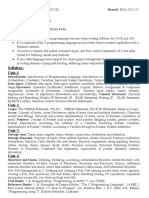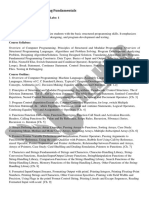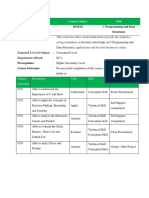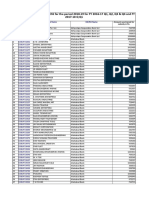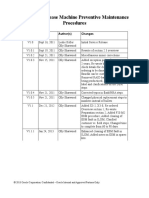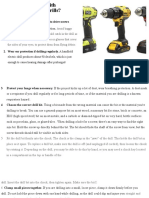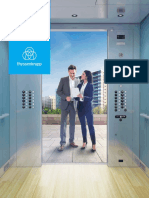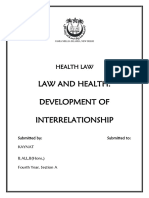0% found this document useful (0 votes)
25 views4 pagesC Programming Syllabus
The C-Programming course (CPM 113) is a foundational module for first-year students, focusing on the features and execution of the C programming language. It covers essential topics such as problem-solving, data types, control statements, functions, arrays, pointers, structures, and file handling, with a total of 168 hours of student learning time. The course aims to develop critical thinking, problem-solving skills, and lifelong learning abilities, assessed through assignments, exams, and quizzes.
Uploaded by
Yam Raj BoharaCopyright
© © All Rights Reserved
We take content rights seriously. If you suspect this is your content, claim it here.
Available Formats
Download as PDF, TXT or read online on Scribd
0% found this document useful (0 votes)
25 views4 pagesC Programming Syllabus
The C-Programming course (CPM 113) is a foundational module for first-year students, focusing on the features and execution of the C programming language. It covers essential topics such as problem-solving, data types, control statements, functions, arrays, pointers, structures, and file handling, with a total of 168 hours of student learning time. The course aims to develop critical thinking, problem-solving skills, and lifelong learning abilities, assessed through assignments, exams, and quizzes.
Uploaded by
Yam Raj BoharaCopyright
© © All Rights Reserved
We take content rights seriously. If you suspect this is your content, claim it here.
Available Formats
Download as PDF, TXT or read online on Scribd
/ 4















